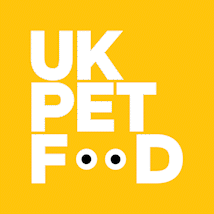The importance of garden hygiene for wild birds
Like any other animals, different species of wild birds can be affected by different diseases, if the necessary hygiene measures are not followed. If you have a large number of birds attracted to your garden, the best way to help them is to focus on prevention of the disease.
Common signs of disease
Although exact symptoms vary between diseases and reaching a diagnosis requires veterinary input, if you keep your eyes open to the following signs, you will be alert when an individual bird is suffering from some form of disease.
Lethargy
Affected birds often appear lethargic and reluctant to move away from the feeding station.
Appear 'fluffed-up'
They may appear fluffed-up and show difficulty in swallowing food or water.
Allowing you to approach
They may also allow you to approach them and pick them up, something that a healthy bird would never do.
Can wild birds be treated for disease?
Unfortunately, by the time it is possible to catch a sick bird for treatment, it is likely to be too late to help them.
Treating sick birds without first capturing them is not advisable, because there is no way of ensuring that medicines will be taken only by affected birds or in the correct doses. This means that it is far better to take preventative action to stop an outbreak occurring in the first place.
Whatever you feed birds with, good hygiene around feeders and bird baths is important all year round, but particularly so during the summer months. The warm weather can make bird food go off more quickly, and can provide ideal conditions for harmful bacteria to proliferate
Tips for keeping your garden hygienic
Keep bird feeders & tables clean
Keep the bird feeder/table and surrounding area clean and free from droppings or mouldy food.
Mouldy food can provide a breeding opportunity for microorganisms which may make the birds ill.
Leave out the right amount of food
Amount of food in your feeder is important. If the food you put in it takes days to clear, this means you should reduce the amount.
Ideally, bird tables should be swept clean each day to remove droppings and any uneaten food.
Consider the location of your feeders
Location of the feeder can protect it from the reach of other animals such as rats. Hanging feeders or bird tables are preferable.
Try to avoid putting the food directly on the ground. Avoid placing a bird table under a tree in which birds perch or roost, since it soon becomes heavily contaminated with droppings.
Sweep & disinfect the ground beneath feeders
The ground beneath feeders should be kept clean by regular sweeping and disinfected through the use of an appropriate disinfectant.
You can move your feeding stations to a new area every month to prevent droppings accumulating underneath.
Wash your bird feeders regularly
Clean and wash your bird feeders regularly.
We recommend using a commercial disinfectant which specifies it is active against avian influenza (used at the manufacturers recommended concentration) followed by rinsing and air drying before being used again.
Rinse water containers daily
Water Containers should be rinsed out every day, particularly during the warmer months.
After washing, allow it to dry before filling in with fresh water again.
Occasionally wash bird baths
Remember your own personal hygiene
Our Personal Hygiene is also important.
Wash your bird feeders outside of your house and use utensils separate from the ones in your kitchen. Always wash your hands before and after handling bird feeders, sick or dead birds in your garden.


